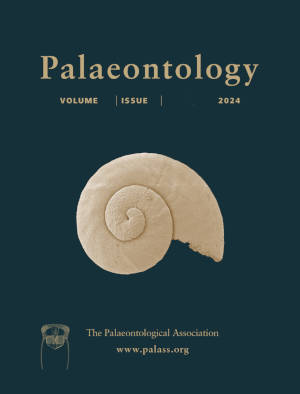Article: Modelling height–diameter relationships in living Araucaria (Araucariaceae) trees to reconstruct ancient araucarian conifer height
Publication: Palaeontology
Volume:
67
Part:
2
Publication Date:
2024
Article number:
e12693
Author(s):
Aowei Xie, Carole T. Gee, and Eva M. Griebeler
Abstract
Abstract To reconstruct a fossil forest in three dimensions, an accurate estimation of tree height is crucial. However, modelling the height–diameter relationship of ancient trees is difficult, because the trunks of fossil trees are usually fragmentary, making direct height measurements impossible. One practical approach for reconstructing ancient tree height is to use growth models based on the height–diameter relationships of the nearest living relatives of fossil taxa. Here we apply 19 models to describe height–diameter relationships of living Araucaria trees for establishing appropriate models for ancient Araucariaceae trees. Data come from four living populations of Araucaria: A. bidwillii and A. cunninghamii in Queensland, Australia, and A. cunninghamii and A. hunsteinii in New Guinea. According to an AIC-based model selection, a power function with an exponent of 0.67 (termed here the modified Mosbrugger model) is found to be the most appropriate for each population and for the entire dataset (157 trees), but normalization constants differ across populations. To find the most appropriate models for the genus Araucaria, 100 random samples (each population generating 25 random samples) from the entire dataset are used. Based on 100 curve fitting results on each model and multiple performance criteria, three median models are generated from the medians of their parameter estimates. Of these, the median 2pPower model works best for Araucaria, but the modified Mosbrugger and Curtis models perform nearly as well. In a case study, we revise tree heights of Upper Jurassic araucariaceous logs in Utah, USA, by applying these three models.
